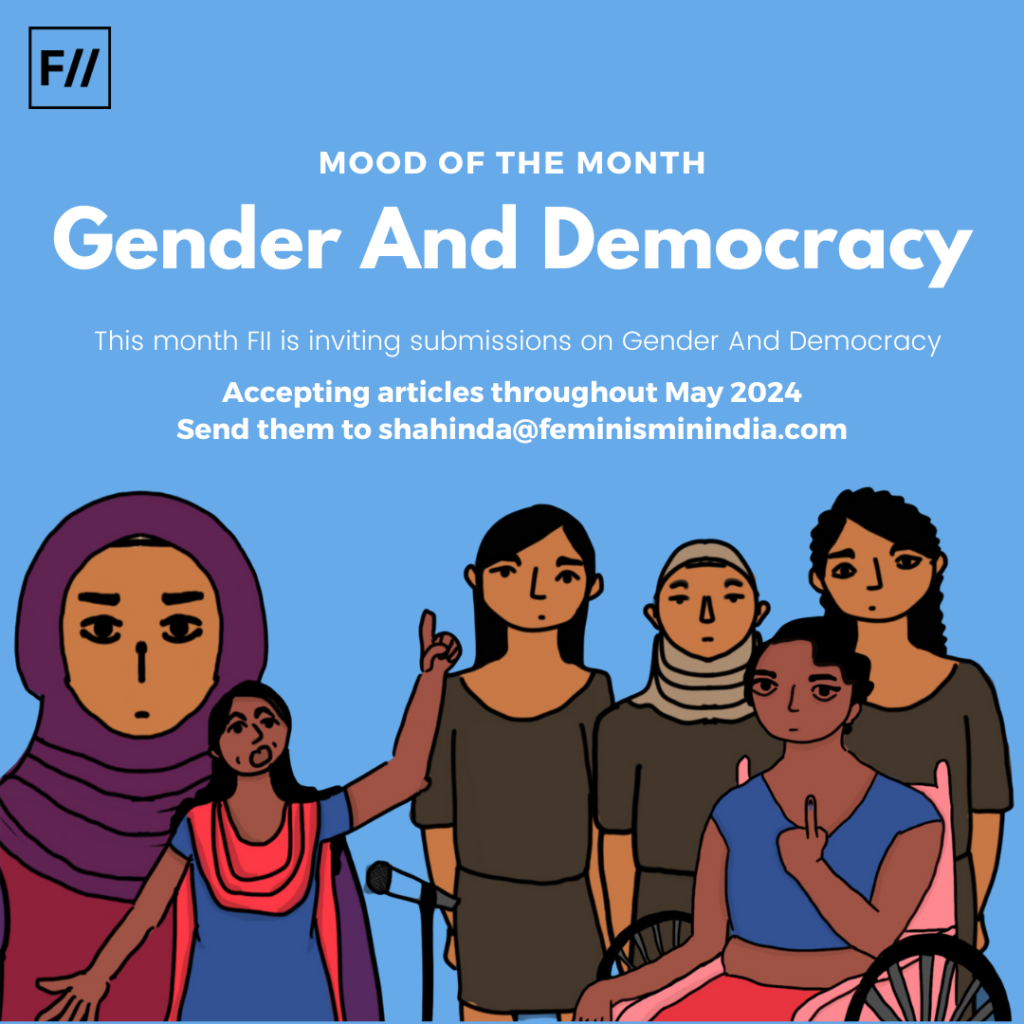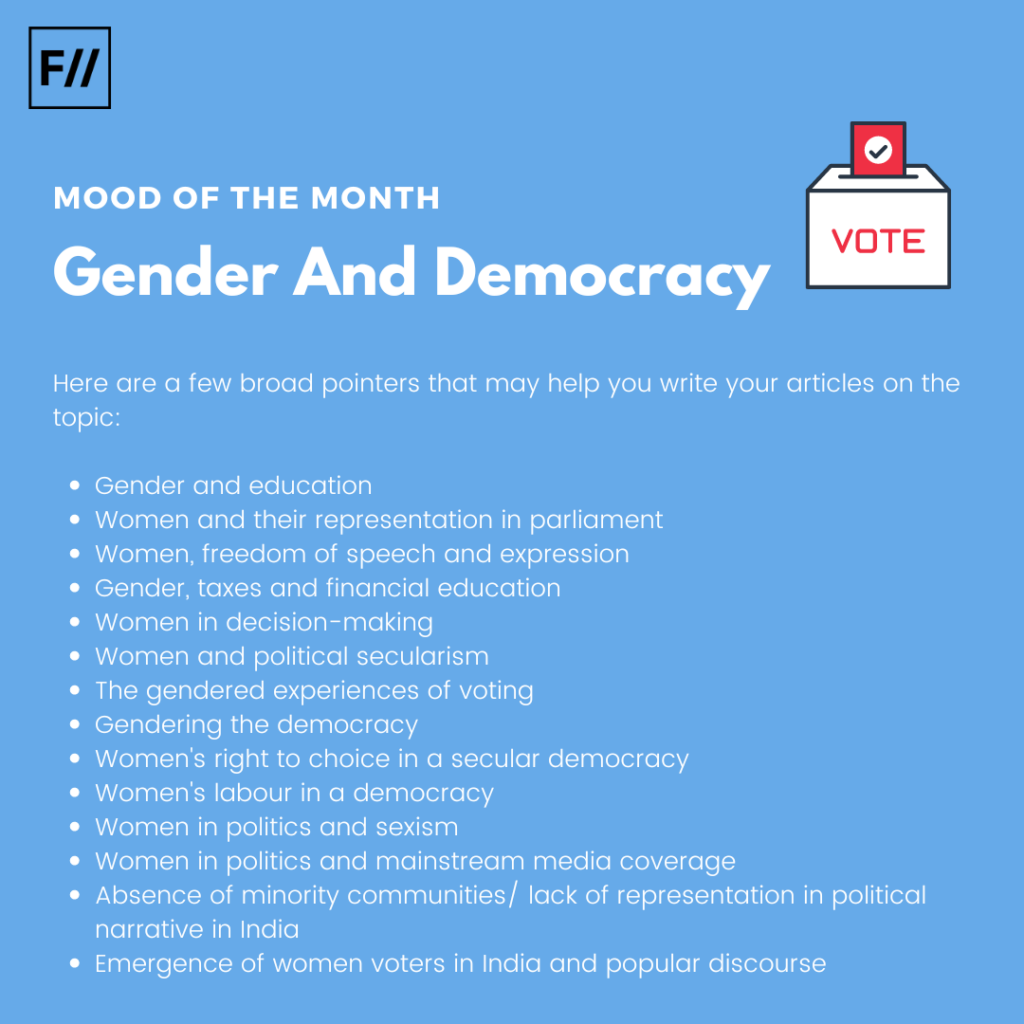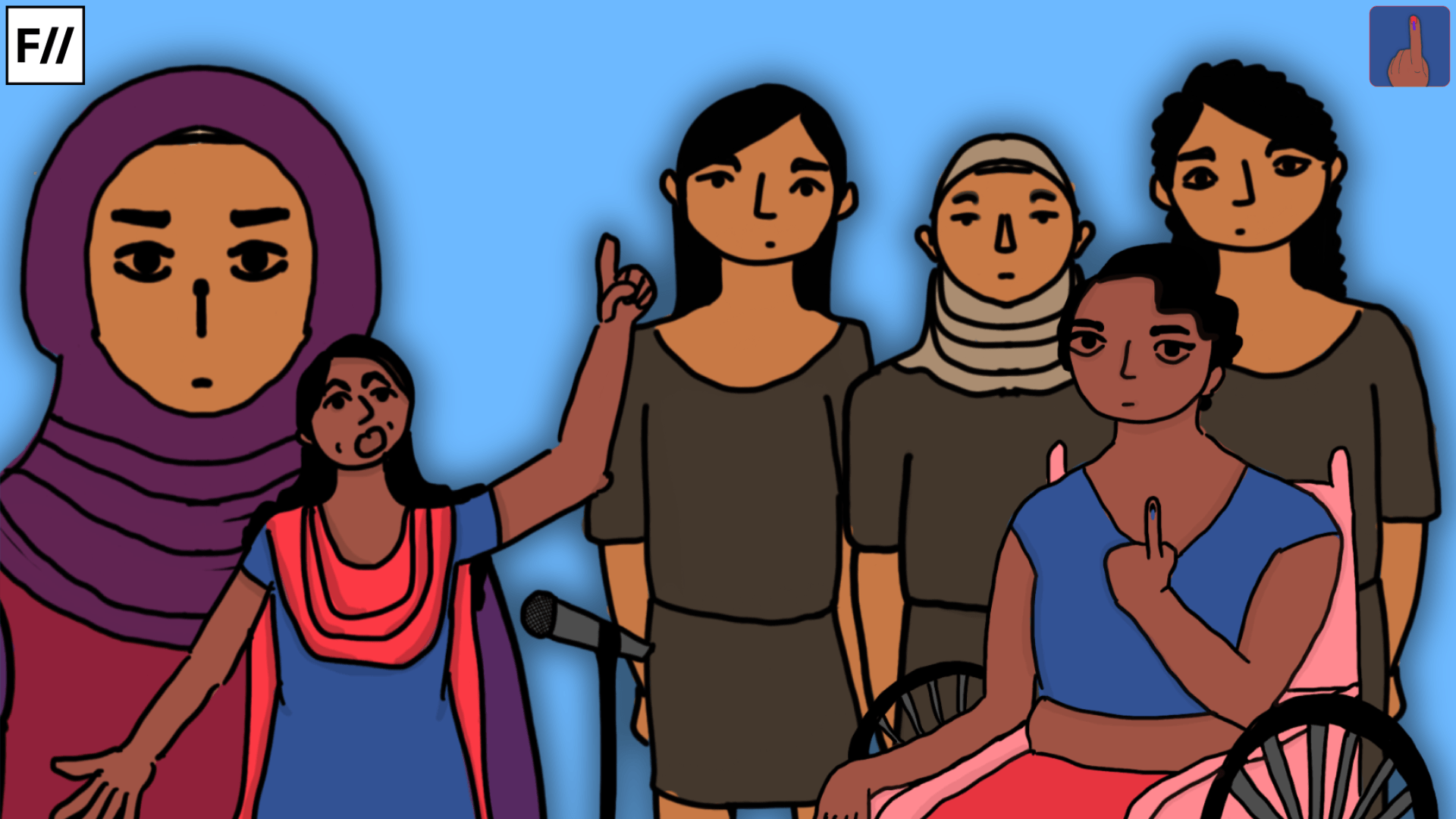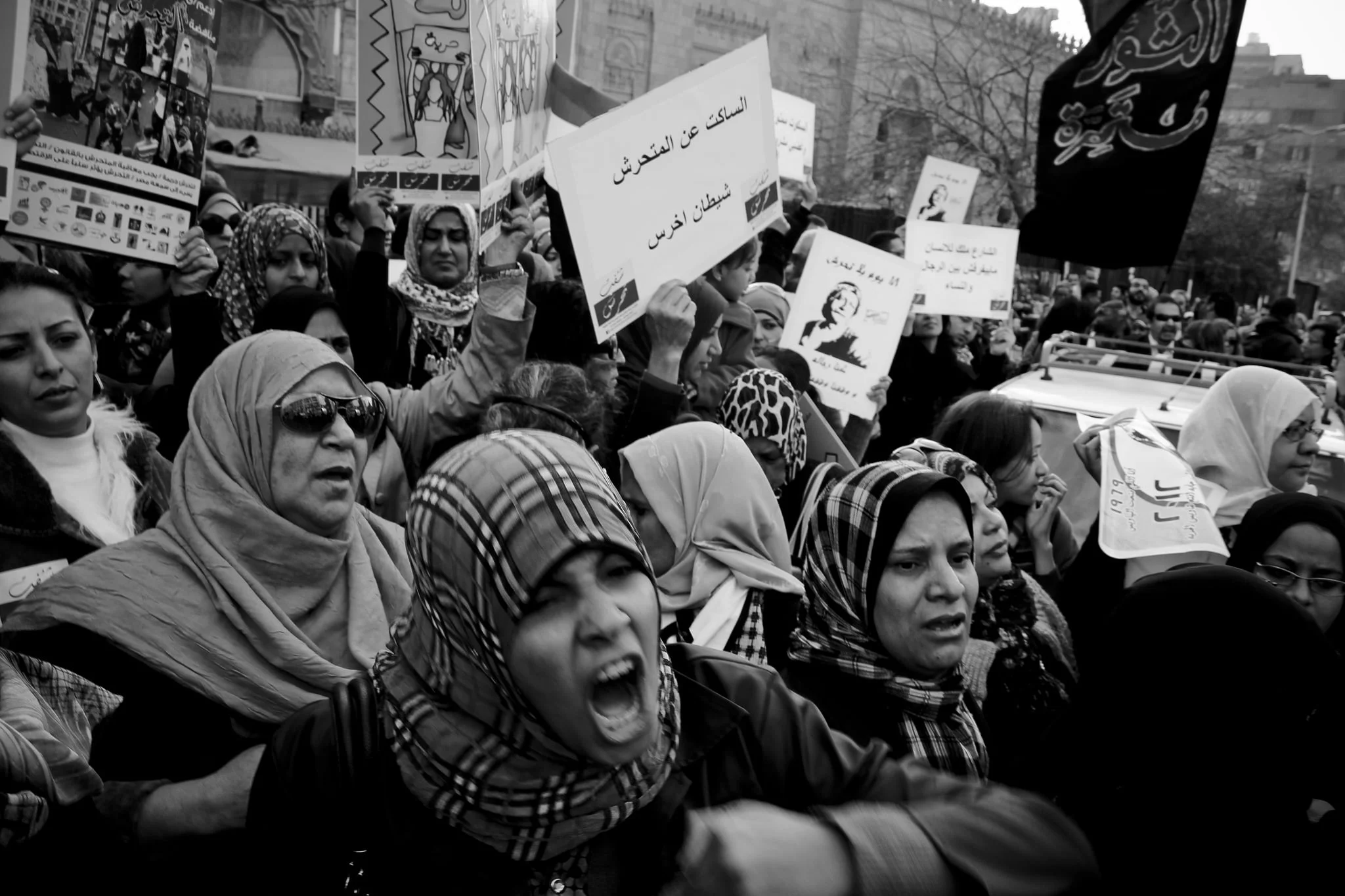Media and male politicians often limit gender issues and concerns to menstruation, childbirth, subsidies for gas cylinders, and increasing prices for groceries and house-related items. However, in a democratic nation, all the issues pertaining to democratic values and systems, from taxes, economy and foreign affairs to freedom of speech, education and unemployment are as integral and important to women as to cishet men.
Women in India have been integral to the formation of this country and the struggle for independence was realised with the participation of women. It has been 70 years since the independence of the country and yet, women’s participation in the political landscape and decision making, which are important to democratic nations, remains quite negligible.
According to World Bank Data, the population of women in India is 48.4 per cent. However, there are only 9 per cent of women candidates in the Lok Sabha, according to the Election Commission of India’s data. The issue of 48.4 per cent of the population with only 9 per cent of candidates representing them and their pressing concerns, is a big loophole for the working and functioning of a democratic nation.
It is also important to note that women with diverse identities- from sexual orientation, caste, and class to regions and ethnicities are to be represented by this 9 per cent. Many women candidates in the 9 per cent are cishet upper caste women, who often covertly or overtly neglect marginalised women.

As the 2024 Lok Sabha elections are already in full swing, many major political parties have launched and given tickets to women candidates to appeal to women voters. But oftentimes, these candidates lag in highlighting issues related to women and fall short of opening a political discourse where women’s issues aren’t limited to just a few problems.
All issues that concern the working and functioning of a democratic nation are women’s issues, for instance, taxes and unemployment are as integral to women as men but unfortunately, even these women candidates do not elaborate on the scope of women’s issues.
Hence, this May, let’s create a discourse that doesn’t limit women’s issues to clothes, and rising grocery prices and opens the horizons of women-related issues. From freedom of expression to speech, from inflation to economy, from gender-based violence to foreign affairs, all issues are as integral to women as men.
Hence, this May, let’s create a discourse that doesn’t limit women’s issues to clothes, and rising grocery prices and opens the horizons of women-related issues. From freedom of expression to speech, from inflation to economy, from gender-based violence to foreign affairs, all issues are as integral to women as men.
Feminism In India is seeking entries for “Gender and Democracy” in May 2024, intending to change the prevailing discourse around women’s issues and broaden their scope.

Following are some tips and suggestions for your articles:
- Gender and education
- Women and their representation in parliament
- Women, freedom of speech and expression
- Gender, taxes and financial education
- Women in decision-making
- Women and Political Secularism
- The gendered experiences of voting
- Gendering the democracy
- Women’s right to choice in a secular democracy
- Women’s labour in a democracy
- Women in politics and sexism
- Women in politics and mainstream media coverage
- Absence of minority communities/ lack of representation in political narrative in India
- Emergence of women voters in India and popular discourse
This list is not exhaustive and you may feel free to write on topics within the theme that we may have missed out on here.
Please refer to our submission guidelines before you send us your entries. You may email your submissions to shahinda@feminisminindia.com
We look forward to your drafts and hope you enjoy writing them!
Featured Illustration: Ritika Banerjee for Feminism In India
About the author(s)
Feminism In India is an award-winning digital intersectional feminist media organisation to learn, educate and develop a feminist sensibility and unravel the F-word among the youth in India.




